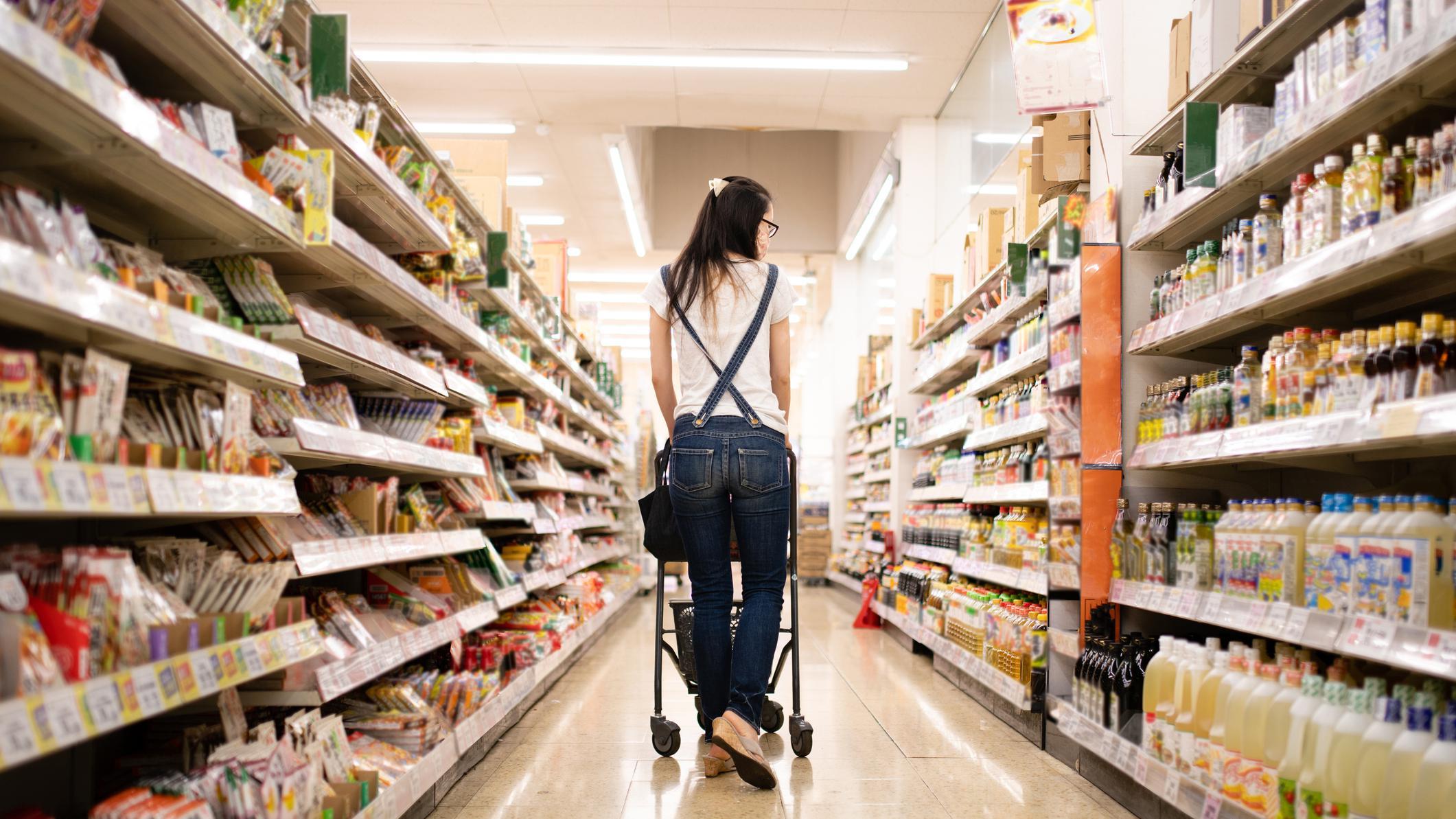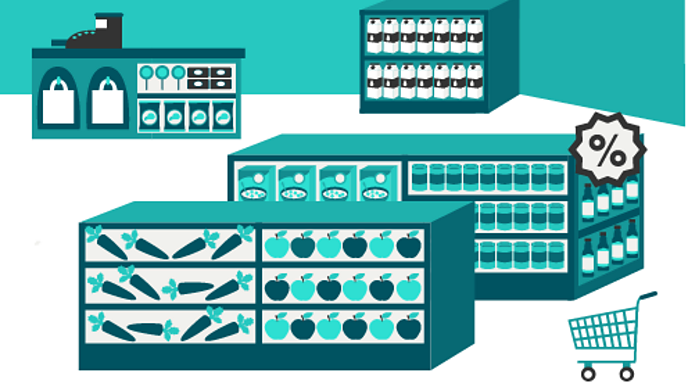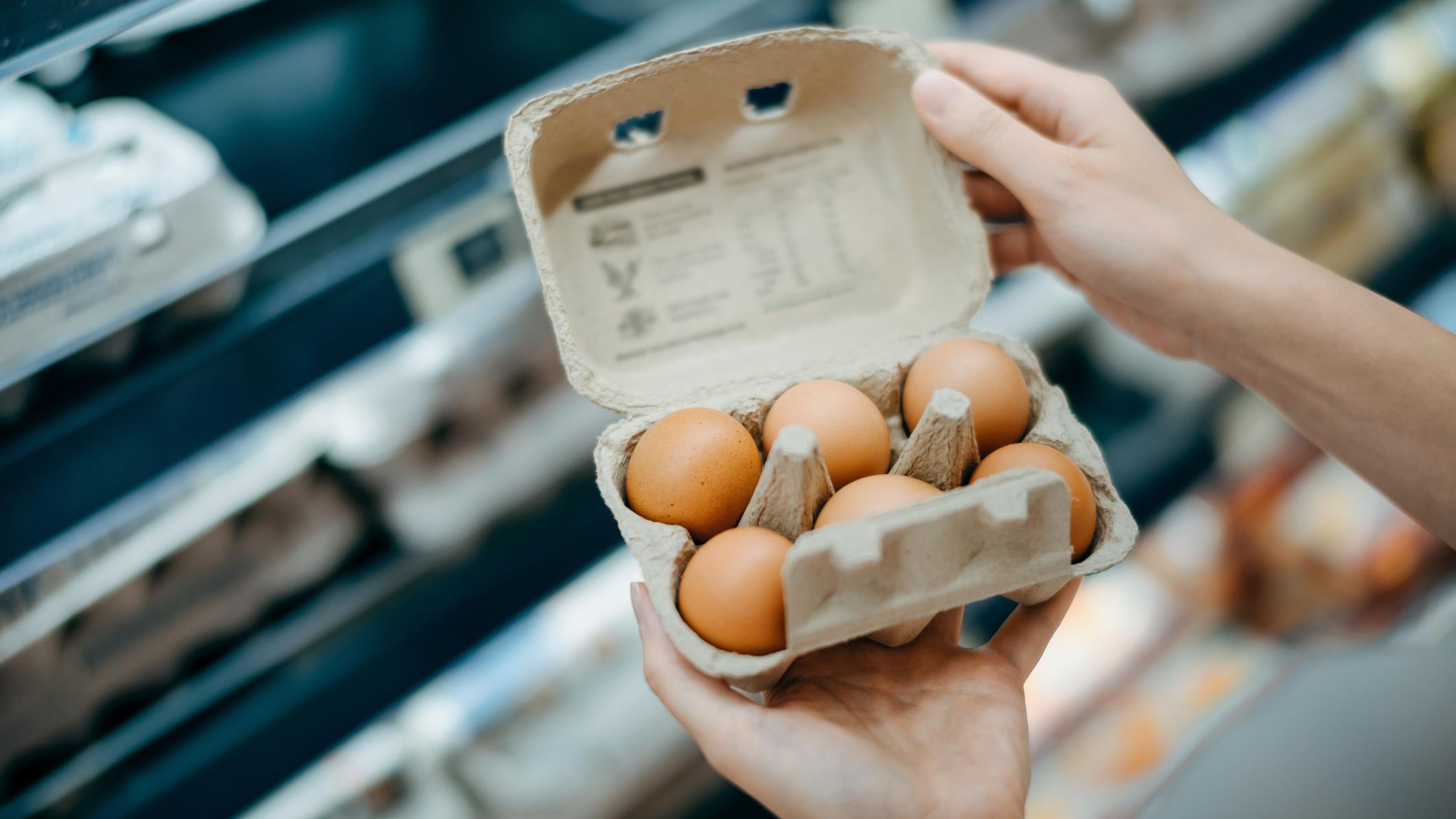
The average shopper in the UK goes to the supermarket 221 times a year. Each market trip is an opportunity to throw products we don’t need into our basket. But why are we doing this?
To understand this, it is necessary to take a step into the carefully managed marketing divisions of supermarkets, where millions are spent figuring out how to sell more.

EVERYTHING ENDS IN PLACEMENT
The placement of products can facilitate extra sales. Have you ever seen a chocolate bar wink at you when you enter the checkout line?
Placing candies and magazines towards the exit increases their sales. This tactic is especially effective on children.
A survey conducted in the UK shows that 83 percent of parents are harassed by their children to buy junk food while waiting in the checkout line, while 75 percent are forced to buy these unhealthy foods.
LOOKING FOR BASIC FOODS LIKE EGGS AND BREAD?
Have you ever walked into the store just for milk and came out with five bags?
Some supermarkets place basic food products such as milk and bread in areas far from the entrance. So you come across many other products as you progress towards achieving the goal.
In addition, these products are placed far from each other.
Sometimes the egg is hidden at the very back of the shop. Egg hunt forces you to roam the entire supermarket. Spending more time leads to spending more money.
DISCOUNTS AT THE LAST
Promotions and special offers are usually placed towards the end as they are more visible. 30 percent of people say they’re more inclined to buy discounted items if they’re at the end rather than in the middle.
VEGETABLES AND FRUITS
Fresh fruit and vegetables are usually found at the entrance of supermarkets. That’s because buying healthy food elevates people’s mood and makes them feel better than buying less healthy items.
PRICING STRATEGIES

Everyone loves to buy discounted products.
According to the study of the Kantar research company, 40 percent of grocery shopping in the UK is promotional sales.
But can consumers really shop at a good price?
ENCOURAGE TO BUY MORE
Buying two cakes for 4 liras is not an opportunity, it’s just arithmetic. However, if the cake is 3 liras, it is a good bargain if two of them are 4 liras.
UNKNOWN PRICES
Most customers have an opinion of roughly 20 basic product prices. These products are usually sold at no price, but the price of other products is high.
SUPERMARKET SENSATION
Are supermarkets manipulating us to buy more?
SMELL
Fragrance has a strong bond with memories, and supermarkets also hold scents that will rekindle good memories and thus support the impulse to buy.
The smell of freshly baked bread reminds you of the oven, and you just left the market with bagels in your hand.
ATTENTION TO THE EYES
Supermarkets are a feast for the eyes with colorful food and promotions as far as you can see.
Premium products are at eye level.
Cereal for the kids may be on the lower shelves. When children make eye contact with the characters on the packaging, they form a bond with them and want to buy more.
SOUNDS
The music playing in the supermarket affects your buying habits.
Slow music allows you to spend longer time in the market, for example. This means you buy more products.
Some supermarkets pave their floors with small tiles. So you think you are going fast and you slow down.
Music also affects what you buy. Studies show that classical music compels you to buy more expensive wines. French music leads to French wines.
TASTE
Everyone loves free food. Research shows that 75 percent of people accept when offered a free meal.
Companies also love to send a free trial product. Because they increase sales tremendously.
Free trial products, on the other hand, increase our appetite, make us feel good and increase our desire to buy.
PREPARING FOR SHOPPING
Getting ready to shop helps you buy only what you need.
Research also shows that using a shopping cart leads you to buy more products.
If you are going to buy less products, you can use baskets to avoid going for things you don’t need.
FIVE SUGGESTIONS TO Spend LESS
- Make a list and stick to it
- Set a budget in your mind
- Spend only cash
- Don’t shop when you’re hungry
- Try online shopping
